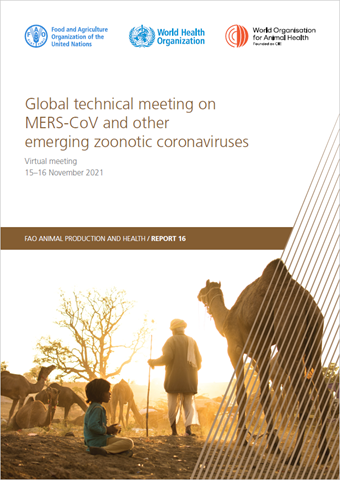Since its identification in the Kingdom of Saudi Arabia in 2012, Middle East Respiratory Syndrome Coronavirus (MERS-CoV) continues to pose a significant public health, health security and economic threat to the global community. To date, more than 2500 cases of human infection have been reported to the World Health Organization[1] and cases have been exported to all regions of the globe. MERS-CoV is one of three high impact, zoonotic coronaviruses that have emerged in recent years.
One of the major successes of the global efforts to address MERS has been the way it has informed the early response activities of the COVID-19 pandemic. In many countries, MERS investment and hard work provided a critical foundation for response to COVID-19.
The COVID-19 pandemic has required the world to reevaluate outbreak and pandemic preparedness, including surveillance, to be strengthened and in a constant state of readiness. Public health lessons learned from COVID-19 should be communicated and applied to MERS-CoV through integrated, One Health surveillance, prevention and control efforts. Likewise, efforts towards the control and prevention of MERS-CoV have contributed to the fight against COVID-19, particularly in the areas of One Health and vaccine development.
Over the last nine years, FAO, OIE, and WHO have brought together public health and animal health experts from affected and at-risk countries, academic scientists and subject matter experts of high threat respiratory pathogens including influenza, SARS and MERS, to review the latest scientific evidence on MERS-CoV and improve multi-sectoral collaboration. As a follow-up to previous technical meetings on MERS-CoV hosted by WHO, FAO and OIE, the 2021 Global Technical Meeting will focus on MERS-CoV and other emerging zoonotic coronaviruses. The meeting will bring together the global community to share the latest findings from accelerated efforts to implement the MERS-CoV public health research agenda and R&D road map.
The specific objectives of the meeting are to:
- Summarize the latest scientific findings and country experiences on MERS-CoV, focusing on recent advances since the last Global Technical Meeting on MERS-CoV held in September 20173
- Facilitate coordination and communication between animal health, public health and environmental sectors in 1) Outbreak preparedness and response, 2) MERS-CoV and other zoonotic coronavirus surveillance activities and laboratory capacity and 3) MERS-CoV and emerging zoonotic coronavirus preparedness, prevention, control, and intervention measures, including vaccination
- Highlight how MERS-CoV research, prevention and control activities have contributed to the global effort against SARS-CoV-2
- Apply lessons learned from COVID-19 to the control and prevention of MERS-CoV and other emerging zoonotic coronaviruses.
- Summarize priority actions and research for the continued advancement in the control and prevention of MERS-CoV.
Expected outcomes of the meeting are:
- A reinforced global commitment to maintain vigilance for prevention, detection and response activities targeting MERS-CoV and other emerging zoonotic coronaviruses, in the context of the COVID-19 pandemic
- Update the public health research agenda for MERS-CoV and highlight newly prioritized research questions
Participants
Stakeholders invited to attend the Global Technical Meeting on MERS-CoV include representatives from Ministries of Health and Ministries of Agriculture in affected and in at-risk countries, MERS-CoV and zoonotic CoV subject matter experts and researchers,
funding agencies, industrial partners and representatives from FAO, OIE and WHO at headquarters, regional and national levels.
Language
The meeting will be held in English with French and Arabic simultaneous interpretation.
Meeting Venue
Virtual, by invitation

